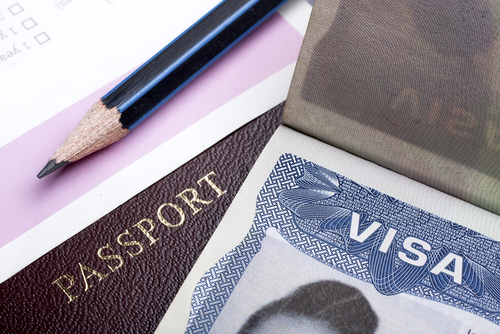Many people are frustrated when they submit what they believe to be a well-reasoned argument as to why their decision should be reversed, only to find that it does not hit the mark and the appeal is refused. A detailed understanding of the Home Office’s case officer guidance and procedures is needed to truly understand the precise mechanisms by which an appeal can be won. In this article, we will explain what is involved in winning an immigration appeal and overturning a visa decision.
What is an immigration decision appeal?
An immigration decision appeal involves challenging a decision made by the UK Home Office. Most appeals are handled by the First-tier Tribunal (Immigration and Asylum Chamber) court, which is entirely separate and independent of the government and Home Office (UKVI). Appealing a visa refusal involves a judge in the Tribunal looking at the decision made against you, the appeal information presented and making a decision whether to overturn the refusal.
Can I bring an appeal against my immigration application decision?
Your decision letter from UK Visas and Immigration (UKVI) will explain whether you have a right to appeal a decision made against your application. Not all decisions can be challenged by appeal. Typically, you will be able to bring an appeal to the First-tier Tribunal (Immigration and Asylum Chamber), where UKVI have:
- refused your protection claim (i.e. asylum claim or humanitarian protection claim)
- revoke your protection status
- refuse your human rights claim
- refuse you a residence document or deport you under the Immigration (European Economic Area) Regulations 2016
- revoke your British citizenship
- refuse or revoke your status, vary the length or condition of your stay, or deport you under the EU Settlement Scheme
- refuse or revoke your travel permit or family permit under the EU Settlement Scheme or restrict your rights to enter or leave the UK under those permits
- refuse or revoke your permit, or deport you if you’re a frontier worker
- refuse or revoke your leave, or deport you if you’re an S2 healthcare visitor
If you don’t have the right to appeal, the other option is to ask the Home Office to undertake an administrative review. An administrative review involves challenging the decision made on the basis that a mistake was made during the decision-making process.
How can I maximise my chances of winning an appeal?
You can maximise your chances of winning an appeal by taking the following steps:
- Read the Home Office case officer guidance for your specific application type – this will explain the process they go through to make a decision, the basis for issuing a refusal, and the amount of discretion they have available. This information is available on the Home Office website.
- Seek advice from an immigration Solicitor immediately – this is perhaps the most important step, as immigration Solicitors are well versed in all the reasons for refusal and the precise mechanisms these can be reversed. This comes from the experience of handling appeals on a daily basis and learning which arguments are effective and the scope of the UKVI case officer’s decision-making authority.
- Submitting your appeal on time – you will only have 14 days to submit your appeal form from the date the decision was sent by UKVI. If you need help with completing the form, perhaps due to your knowledge of English, it is important to seek help.
- Understanding the reasons for refusal – your refusal letter will outline your reasons for refusal, but it is important to understand exactly what this means, i.e., were you refused on the basis that your application was invalid, were you ineligible, or were you deemed not suitable? And why exactly? If this is not clear from the letter you received, an immigration lawyer will be able to help you get to the bottom of exactly why the decision was made.
- Understanding how to argue the reason for refusal – it is not sufficient simply to complete the appeal form with a vague reason why you feel the adverse decision was wrong. You need to know exactly which grounds for appeal to focus on and how to back this up with evidence. The main grounds for appeal are:
- your removal would breach the UK’s legal obligations to protect you
- the decision breaches the Human Rights Act
- the decision is not in accordance with EU law (this mainly relates to EU Settlement Scheme applications)
- Ask for an oral hearing – you will have the choice to have a decision made purely on the paper provided or with oral evidence (this means you will be able to give evidence and explain any matters to the judge directly). Giving oral evidence will typically lead to a better outcome than just having the matter decided on the papers alone.
- Explain any new matters which have arisen – the appeal form provides you with an opportunity to explain any new matters which have arisen as to why you should be permitted to stay or not be removed. This should be information you have already advised the Home Office of since your initial application. By making sure this section is completed, you can ensure that the judge is aware of these factors in their decision-making.
If my appeal is successful, how long will it take to get a visa?
Assuming your immigration appeal is successful, the judge will advise UKVI of the decision. It may take up to 12 weeks until after the appeal decision for this to be processed by UKVI.
Final words
Winning an appeal against an adverse immigration decision requires a particular set of skills and experience. By engaging the services of Ashwood Solicitors’ immigration lawyers in the UK who can handle the appeal on your behalf, you will maximise your chances of receiving a decision in your favour, allowing you to secure your right to stay in the UK.
